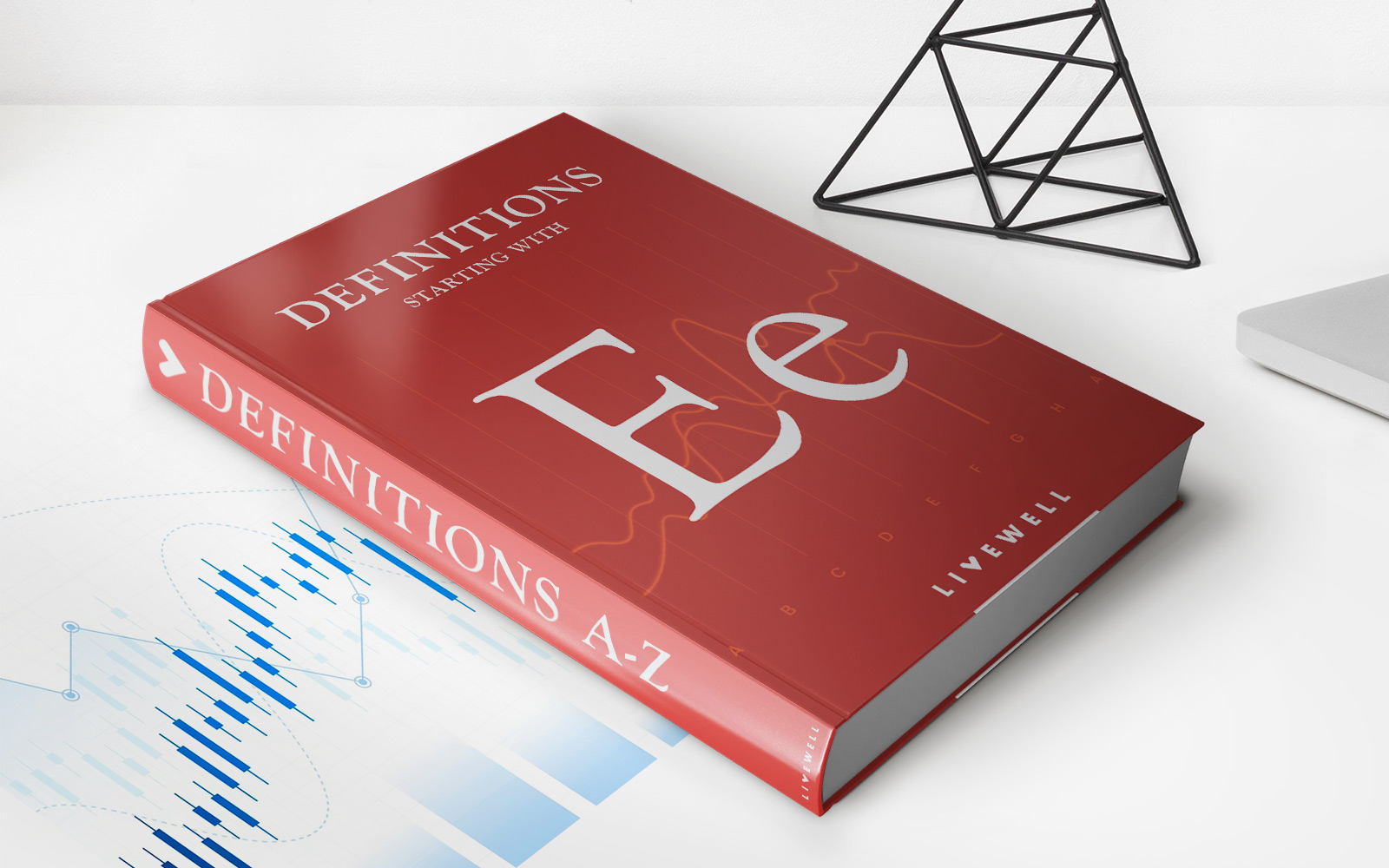

Finance
Who Pays For Title Insurance In Colorado?
Modified: December 30, 2023
Learn about the finance aspect of title insurance in Colorado and find out who typically pays for it.
(Many of the links in this article redirect to a specific reviewed product. Your purchase of these products through affiliate links helps to generate commission for LiveWell, at no extra cost. Learn more)
Table of Contents
Introduction
When it comes to purchasing a home in Colorado, one of the essential steps in the real estate transaction process is obtaining title insurance. Title insurance is a policy that protects both the buyer and lender from any potential financial losses or disputes regarding the property’s title.
In Colorado, as in many other states, the question of who pays for title insurance can vary depending on various factors. Typically, the buyer and seller negotiate and agree on how the costs of title insurance will be allocated. Understanding the roles of both the buyer and seller in paying for title insurance is crucial before entering into a real estate transaction.
In this article, we will explore the dynamics of title insurance in Colorado and delve into who typically pays for title insurance and under what circumstances. Additionally, we will discuss exceptions and negotiations that may influence the payment of title insurance and the factors that can affect its cost.
By gaining insight into the intricacies of paying for title insurance in Colorado, you will be better equipped to navigate the real estate transaction process and make informed decisions that protect your interests.
Understanding Title Insurance in Colorado
Title insurance is a crucial component of the real estate transaction process in Colorado. It provides protection for both buyers and lenders by insuring against any potential issues with the property’s title.
In Colorado, a property’s title refers to the legal ownership and rights linked to the property. Before a buyer purchases a property, it is vital to conduct a thorough title search to ensure that the title is clear and free of any liens, claims, or encumbrances.
During the title search process, a professional examines public records to verify the current and historical ownership of the property, as well as any existing mortgages, judgments, or other potential issues. The goal of the title search is to identify any defects in the title that may affect the buyer’s ownership rights or lender’s security interest in the property.
If any issues arise during the title search, such as undisclosed liens or conflicting ownership claims, the buyer could face financial losses or legal disputes. This is where title insurance comes into play.
When a buyer purchases title insurance in Colorado, they are essentially paying for an insurance policy that protects them and their lender from financial losses caused by title defects, errors, omissions, or fraud that may not have been discovered during the title search process.
In the event that a covered title issue arises after closing, the title insurance policy will typically cover the costs of defending the title in court, as well as any financial losses incurred by the buyer or lender. This can provide peace of mind and financial protection to all parties involved in the real estate transaction.
It is important to note that title insurance in Colorado is typically a one-time premium paid at the time of closing. This means that the policy remains in effect for as long as the insured party or their heirs own the property.
Now that we have a basic understanding of title insurance in Colorado, let’s explore the roles of the buyer and seller in paying for title insurance.
The Role of the Seller in Paying for Title Insurance
In Colorado, it is common for the seller to pay for the owner’s title insurance policy. This is because the seller is usually responsible for providing a clear and marketable title to the buyer.
When the seller pays for the owner’s title insurance policy, it ensures that any title issues or defects that may arise during the buyer’s ownership are the seller’s responsibility to resolve. This protects the buyer from assuming any financial burden related to unforeseen title issues.
The cost of the owner’s title insurance policy is typically calculated based on the purchase price of the property. It is important to note that while the seller may be responsible for paying for the owner’s policy, the buyer may still have the option to purchase additional coverage, such as an enhanced policy or endorsements, at their own cost.
By having the seller pay for the owner’s title insurance policy, the buyer can have peace of mind knowing that the property’s title has been thoroughly examined and any potential issues have been resolved prior to the purchase. This can provide a sense of security and protect the buyer’s investment in the property.
However, it is important to understand that the allocation of title insurance costs is negotiable, and both the buyer and seller can agree to a different arrangement. In some cases, the buyer may assume the responsibility of paying for the owner’s policy, especially if it is a contingency in the sales contract or if the buyer wants additional control over the title search process.
It is crucial for both the buyer and seller to have a clear understanding of the provisions regarding title insurance and who will be responsible for paying for it before entering into a purchase agreement. This ensures that there are no misunderstandings or surprises during the closing process.
In the next section, we will examine the role of the buyer in paying for title insurance in Colorado.
The Role of the Buyer in Paying for Title Insurance
While it is common for the seller to pay for the owner’s title insurance policy in Colorado, the buyer may still bear some responsibility for paying for title insurance. This typically includes the cost of the lender’s title insurance policy.
In most real estate transactions, the buyer is required to obtain a lender’s title insurance policy to protect the lender’s interest in the property. The lender’s policy is separate from the owner’s policy and is typically a requirement for obtaining a mortgage loan.
The lender’s title insurance policy protects the lender’s investment in the property by ensuring that their security interest is protected in case of any title issues or defects. It covers the lender for the amount of the mortgage loan and remains in effect until the loan is fully paid off or refinanced.
The cost of the lender’s title insurance policy is usually based on the loan amount. It is typically the responsibility of the buyer to pay for this policy. However, as with the owner’s policy, the allocation of costs is negotiable, and the buyer and seller may come to a different arrangement.
It is important for buyers to understand their obligations when it comes to paying for title insurance and to budget for the associated costs during the homebuying process. Working with a knowledgeable real estate agent or attorney can help provide clarity and guidance on the specific requirements and expectations regarding title insurance.
Buyers should also be aware that while the lender’s policy protects the lender, it does not protect the buyer’s interest in the property. If the buyer wants additional protection, they may have the option to purchase an owner’s title insurance policy at their own expense. This can provide further peace of mind regarding the ownership and marketability of the property.
Remember, communication and negotiation between the buyer and seller are paramount in determining who will pay for title insurance. It is important to consult with professionals and review the terms and conditions of the purchase agreement to clearly establish the responsibilities of each party.
Next, we will explore exceptions and negotiations that may influence the payment of title insurance in Colorado.
Exceptions and Negotiations in Paying for Title Insurance
While it is common for the seller to pay for the owner’s title insurance policy and the buyer to pay for the lender’s policy in Colorado, there are exceptions and opportunities for negotiations when it comes to allocating the costs of title insurance.
During the negotiation process, the buyer and seller can discuss and agree on how the title insurance costs will be divided. This may involve negotiating who pays for the owner’s policy, the lender’s policy, or any additional coverages or endorsements.
For example, in a competitive real estate market, the buyer may be willing to assume the cost of both the owner’s and lender’s policies to make their offer more attractive to the seller. Conversely, the seller may agree to pay for both policies to incentivize the buyer to move forward with the purchase.
Another scenario where negotiations may come into play is when the seller is unable or unwilling to pay for the owner’s title insurance policy. In this case, the buyer may choose to assume the responsibility of payments for both the owner’s and lender’s policies.
It is important for buyers and sellers to consider their respective positions, motivations, and financial circumstances when discussing the allocation of title insurance costs. Open communication and a willingness to find a mutually beneficial solution are key to reaching an agreement.
Furthermore, it is advisable to consult with a real estate attorney or experienced real estate agent who can provide guidance and help navigate the negotiation process. They can explain the implications of different payment arrangements and ensure that the buyer’s and seller’s interests are protected.
It’s worth noting that some title insurance companies in Colorado offer discounted rates or promotional offers, so exploring different providers and comparing quotes can be beneficial in minimizing the overall cost of title insurance.
Ultimately, the payment of title insurance is subject to negotiation and agreement between the buyer and seller. The key is to consider the unique circumstances of the transaction and work towards a fair and mutually agreeable arrangement.
Now let’s move on to explore the factors that can affect the cost of title insurance in Colorado.
Factors Affecting the Cost of Title Insurance
The cost of title insurance in Colorado can vary depending on several factors. Understanding these factors can help buyers and sellers anticipate and budget for the associated expenses.
1. Property Value: The cost of title insurance is often directly related to the value of the property. Higher-priced properties usually entail higher insurance premiums due to the increased financial risk associated with potential title issues.
2. Mortgage Loan Amount: For the buyer’s lender’s title insurance policy, the cost is typically based on the loan amount. As the loan amount increases, so does the cost of the policy.
3. Type of Policy: Different types of title insurance policies can affect the cost. Basic policies, which protect against common title issues, are typically less expensive than enhanced policies that offer additional coverages and endorsements.
4. Endorsements: Additional endorsements or coverages can be added to a title insurance policy to provide extra protection for specific circumstances. These endorsements may come at an additional cost.
5. Location: The location of the property can influence the cost of title insurance. Different states may have varying insurance premium rates, and even within a state, certain areas may require higher premiums due to specific risks.
6. Title Examination: If the title search reveals potential title issues or clouds on the property’s title, additional work may be required to resolve those issues. This can increase the cost of title insurance.
7. Title Insurance Provider: Different title insurance companies may offer varying rates and discounts. It is advisable to shop around, compare quotes, and consider the reputation and reliability of the insurance provider to ensure quality coverage.
It’s important to note that while buyers are responsible for the lender’s title insurance policy, they have the right to choose their own title insurance company. They can investigate the insurance company’s track record, reviews, and service quality before making a decision.
Seeking professional advice from a real estate agent, attorney, or title insurance professional can help navigate these factors and estimate the potential costs associated with title insurance in Colorado.
Now, let’s conclude our discussion on who pays for title insurance in Colorado.
Conclusion
Understanding who typically pays for title insurance in Colorado is essential for both buyers and sellers in a real estate transaction. While it is common for the seller to pay for the owner’s title insurance policy, the buyer is typically responsible for the lender’s policy. However, these allocations are subject to negotiation, and both parties have the opportunity to come to a mutually beneficial agreement.
Title insurance provides crucial protection for buyers and lenders by safeguarding against any potential title issues or defects. It is a one-time premium paid at the time of closing and remains in effect for as long as the insured party or their heirs own the property.
During the negotiation process, buyers and sellers should consider their individual circumstances, motivations, and financial abilities when discussing the distribution of title insurance costs. Open communication and collaboration can help ensure a fair and satisfactory agreement for all parties involved.
Factors that influence the cost of title insurance include the property value, loan amount, type of policy, endorsements, location, title examination, and the title insurance provider. Buyers should carefully consider these factors and shop around for the best insurance rates and coverage.
Working with experienced professionals such as real estate agents, attorneys, and title insurance professionals can provide guidance and clarity throughout the process. They can help navigate negotiations, review contract provisions, and safeguard the interests of both buyers and sellers.
By gaining a comprehensive understanding of title insurance and its payment dynamics in Colorado, buyers and sellers can navigate the real estate transaction process with confidence. The protection provided by title insurance ensures a secure and smooth transfer of ownership, allowing buyers to enjoy their new property without the fear of title-related issues.
In summary, title insurance plays a critical role in the Colorado real estate market, protecting buyers and lenders from financial losses and disputes. With a clear understanding of who pays for title insurance and the factors that influence its cost, buyers and sellers can make informed decisions and proceed with confidence in their real estate transactions.














